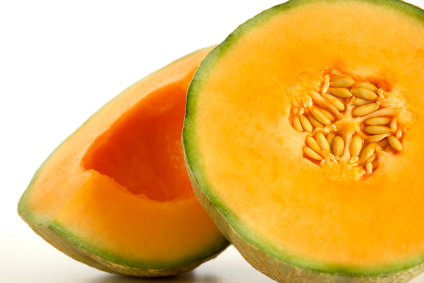 Summer is here, and that means a new set of seasonal fruit to enjoy. Summertime also means an increased risk for foodborne illnesses, as bacteria multiply faster in warmer temperatures. The last thing you want on a vacation, road trip, or at a backyard barbecue are sick kids. Thankfully, washing fruits thoroughly can keep them safe-to-eat.
Summer is here, and that means a new set of seasonal fruit to enjoy. Summertime also means an increased risk for foodborne illnesses, as bacteria multiply faster in warmer temperatures. The last thing you want on a vacation, road trip, or at a backyard barbecue are sick kids. Thankfully, washing fruits thoroughly can keep them safe-to-eat.
Berries: Because they are tender and delicate, harvesting berries is a labor-intensive job. With so many hands touching berries, there is greater potential for contamination. Most recently in 2016, 143 people in 9 states were infected with Hepatitis A by frozen strawberries. To clean berries:
- Refrigerate for an hour to firm them up and then rinse with cold running water. Do not soak.
- Remove stems to reduce hiding places for bacteria, and cut away any bruised or damaged areas.
- To dry berries, place them in a colander in the refrigerator. This will allow the circulating air to speed the drying process and reduce the chance of molding.
Melons: Melons grow in the dirt and are exposed to a wide variety of pests and bacteria. Although we don’t usually eat the melon’s tough outer rind, simply slicing the fruit can allow bacteria on the surface to contaminate the inside. Many people have become sick from eating poorly-washed melons, particularly cantaloupes. In 2012, 261 people in 24 states were infected with Salmonella from tainted cantaloupe. The year before, 147 people in 28 states were infected with Listeria. To clean melons:
- Place in running water slightly warmer than the fruit. Colder water will increase the absorption of water into the melon, and drive bacteria further into the fruit.
- Scrub with a clean produce brush or with your hands.
- Skip produce washes and soap. Running water is the most effective method of cleaning produce.
Stone Fruits (Peaches, Plums, Cherries): Although few outbreaks have been traced to stone fruits, foodborne illnesses have been traced back to all varieties of fresh produce. It is important to treat all fruits and vegetables as potential sources of illness, and clean them thoroughly. To clean stone fruits:
- Place in cold running water, and scrub with a clean produce brush or with your hands.
- If appropriate, peel the fruit to reduce surface contamination. Dry with a paper towel.
Even if you plan to grill your fruits, it is still important to wash them. Cooking kills many bacteria, but it doesn’t kill everything. Here are some other quick grilling tips to last you through the summer. More information and resources can be found on our Food Safety & Environmental Services Program website. Enjoy your food-safe summer!









